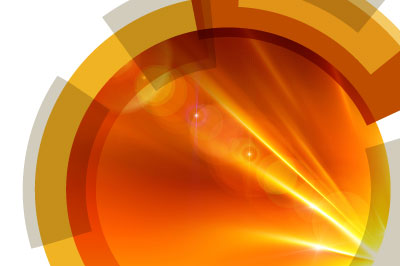Welcome
Join us in London, UK in July 2019 for this addition to our Faraday Discussion series. For over 100 years and 300 meetings, Faraday Discussions have been the forefront of physical chemistry. Many of these Discussions have become landmark meetings in their field.
We invite you to join us to discuss the topic of Nanolithography of Biointerfaces and make your contribution to this cutting-edge dialogue alongside leaders in this field.
This meeting is for established scientists, post-graduate students and industrial researchers interested in Nanolithography of Biointerfaces. Given the recent developments in the field, the unique format of the Faraday Discussions will allow for in-depth discussions and opportunities to establish new collaborations.
On behalf of our committee, we look forward to welcoming you to London.
Adam Braunschweig
Chair
Attendance
The RSC is keen to encourage and enable as many people as possible to attend our events, to benefit from the networking opportunities and the chance to hear talks from leaders in the field. If you have childcare, caring responsibilities or other care needs, and would like to attend this event, please do get in touch with us to see if there’s anything we can do to help enable you to attend.
Format
Faraday Discussions remain amongst the only conferences to distribute the speakers’ research papers in advance, allowing the majority of each meeting to be devoted to discussion in which all delegates can participate. Following each meeting a written record of the discussion is published alongside the papers in the
Faraday Discussions journal.
Find out more about the Faraday Discussions in this video
Themes
- Multidimensional Micro- and Nano-printing Technologies
Biological interfaces are complex, three dimensional, and span several orders of magnitude in critical dimensions. Studying them, therefore, requires new tools that operate at the nano- and micro-scale, and that are non-destructive towards the delicate organic and biological materials that dominate biointerfaces. The particular challenges in this field are that the instrumentation capable of creating objects with nanoscale dimensions require high-energy inputs and are therefore incompatible with the soft materials that comprise cellular interfaces. Researchers seeking to understand and reconstruct biological interfaces overcome this limitation with new soft-matter compatible nanofabrication tools. This session will focus on developments in nanoprinting and nanofabrication technologies that are used to immobilize delicate organic and biologically active molecules and interrogate their physical properties (e.g., the interaction of proteins with surfaces and the impacts on electronic structure, printing techniques to express biological mimics at surfaces and nano/micro objects that interact with and are taken up by living cells).
- Preparation of Multivalent Glycan Micro- and Nano-Arrays
Recreating the binding thermodynamics that are prevalent on biointerfaces requires scaffolds that capture multivalent and cooperative ligand presentation. The complexity of carbohydrate synthesis and their difficult isolation from natural sources precludes their facile deployment in glycan micro- and nano-arrays. To this end, different schools of thought are emerging on how to capture this presentation. Speakers in this session represent two increasingly popular approaches where either multivalent biological scaffolds are used as anchors for native glycans or where glycomimetic polymers are printed or grown from surfaces. This session will focus on how the different approaches alter the binding and mechanical properties of the resulting substrates.
- Glycan Interactions on Glycocalyx Mimetic Surfaces
Binding at biological interfaces, which is dominated by carbohydrate recognition, is controlled by weak interactions, where multivalency and cooperativity have an outsized role in determining selectivity and specificity. New physical models and data are needed to understand how these binding modes drive hierarchical biological processes, but these efforts are limited by the dearth of materials that model the chemical composition and structural complexity of the layers of glycans coating eukaryotic cells. Speakers in this session will come from groups who are studying glycan-substrate recognition on biomimetic surfaces using a variety of spectroscopic probes and showing how these data can lead to new thermodynamic models that can explain exotic biological behaviour.
- New Directions in Surface Functionalization and Characterization
Surfaces – such as glass, metal, nitrocellulose, polymeric, or other reactive substrates – modified with organic compounds have, for decades, been used to control macroscopic interfacial properties (e.g., wetting, anti-fouling, etc.) but advances in synthesis, physical-organic chemistry and spectroscopy of soft-matter functionalized surfaces enable the tailoring of surface interactions at the molecular scale that affect interactions with biological molecules either directly (naked biopolymers) or via expression at a cell membrane. Specifically, when these substrates are functionalized with patterns of organic and biologically-active molecules, the physical properties and biological responses can be manipulated. As such, the ability to understand and recreate biological interfaces is advanced directly by new chemistries for immobilizing soft-matter onto surfaces. This session will focus on new developments in the functionalization of surfaces that takes place at the nexus of physical, organic, and biochemistry for the purpose of understanding and controlling the properties of biological molecules at interfaces from specific, molecular interactions to complex biological functions such as cell differentiation and morphology. Speakers in this session will present efforts to use new biocompatible chemistries to functionalize surfaces, with an emphasis on the quantitative investigation of reaction kinetics and mechanisms at interfaces.










